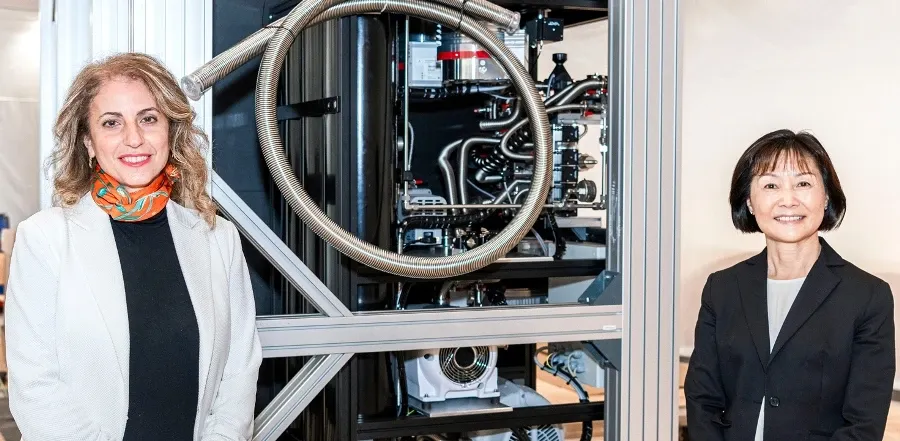CES 2026: Samsung To Operate a Standalone Exhibition Hall
Samsung announced that it will present a new exhibition paradigm with The First Look at CES 2026.

Cleveland Clinic and IBM have begun deployment of the first private sector onsite, IBM-managed quantum computer in the United States. The IBM Quantum System is to be located on Cleveland Clinic’s main campus in Cleveland.
The first quantum computer in healthcare, anticipated to be completed in early 2023, is a key part of the two organizations’10-year partnership aimed at fundamentally advancing the pace of biomedical research through high-performance computing. Announced in 2021, the Cleveland Clinic-IBM Discovery Accelerator is a joint center that leverages Cleveland Clinic’s medical expertise with the technology expertise of IBM, including its leadership in quantum computing.
“The current pace of scientific discovery is unacceptably slow, while our research needs are growing exponentially,“ said Lara Jehi, Cleveland Clinic’s Chief Research Information Officer. “We cannot afford to continue to spend a decade or more going from a research idea in a lab to therapies on the market. Quantum offers a future to transform this pace, particularly in drug discovery and machine learning.“
“A step change in the way we solve scientific problems is on the horizon,“ said Ruoyi Zhou, Director, IBM Research - Cleveland Clinic Partnership. “At IBM, we’re more motivated than ever to create with Cleveland Clinic and others lasting communities of discovery and harness the power of quantum computing, AI, and hybrid cloud to usher in a new era of accelerated discovery in healthcare and life sciences.“
The Discovery Accelerator also serves as the technology foundation for Cleveland Clinic’s Global Center for Pathogen Research & Human Health, part of the Cleveland Innovation District. The center, supported by a $500 million investment from the State of Ohio, Jobs Ohio, and Cleveland Clinic, brings together a team focused on studying, preparing, and protecting against emerging pathogens and virus-related diseases. Through Discovery Accelerator, researchers are leveraging advanced computational technology to expedite critical research into treatments and vaccines.
Together, the teams have already begun several collaborative projects that benefit from the new computational power. The Discovery Accelerator projects include a research study developing a quantum computing method to screen and optimize drugs targeted to specific proteins; improving a prediction model for cardiovascular risk following non-cardiac surgery; and using artificial intelligence to search genome sequencing findings and large drug-target databases to find effective, existing drugs that could help patients with Alzheimer’s and other diseases.